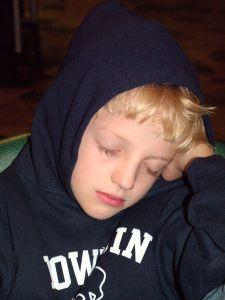The Hazards Of Your Toddler Snoring
Snoring In Children Is A Cause For Concern
With many new parents overwhelmed with the myriad of parenting responsibilities, snoring may sometimes be overlooked. While your toddler snoring may seem quite harmless, the possible effects are quite alarming. Unresolved snoring issues will affect your child as they grow up and start schooling. Many times the lack of healthy sleep will cause your child to be inattentive, disruptive, and this often results in misdiagnosis of having ADHD. In fact, your child may have a sleeping disorder affecting his/her behavior and can lead to longer term issues.
The Health Effects of Your Toddler Snoring
The link between snoring and effects on behavior may be related to hypoxia, or decreased oxygen delivery to the brain. On average, a toddler snoringthroughout the night will not receive enough air, causing a situation in which many doctors believe occurs frequently with sleep-disruptive breathing disorders. Less oxygen delivery to the brain can mean inflammation, and even changes in the brain tissue itself.
Research has shown that poor sleep quality in children, including snoring, is linked to hyperactivity. However, little is known about “how much” snoring is too much, and whether the behavioral effects last over time. Loud snoring that lasts for months or years is abnormal and should be investigated further.
A Recent Study On Snoring In Children
A new study published recently in the journal Pediatrics looked at 249 mother/child pairs at 2 and 3 years of age and asked parents how frequently they heard “loud snoring” coming from their child’s bedroom. Children were characterized as “non-snorers” if they snored less than once per week, “transient snorers” if they snored more than two times per week at age 2 or age 3, or “persistent snorers” if they snored more than two times per week both at age 2 and at age 3.
These toddlers snoring throughout the night were then assessed for behavioral problems — including hyperactivity, aggression, depression, and inattention — based on a validated questionnaire known as the Behavior Assessment System for Children.
The results of this study demonstrated that the persistent snorers had significantly worse overall behavioral functioning at age 3, specifically in the areas of hyperactivity, depression, and attention, compared to the transient snorers and the non-snorers. In fact, 35 percent of persistent snorers were found to be at risk for behavioral problems. Snoring in children cannot be dismissed, it’s best to find a remedy sooner than later.
Sleep Remedies For Children: Get Help Today
If you think that your child exhibits signs of significant snoring, consult your pediatrician. You may be saving your child from developing future emotional and social issues. Learn more about the health effects of snoring by visiting our article database. There are many natural remedies that can help your snoring toddler; or point in you a proper direction to find the best remedy or assistance.
Tags: children sleeping problems, children snoring, natural sleep aid for children, sleep remedies for children, snoring children, toddler snoring
Trackback from your site.

